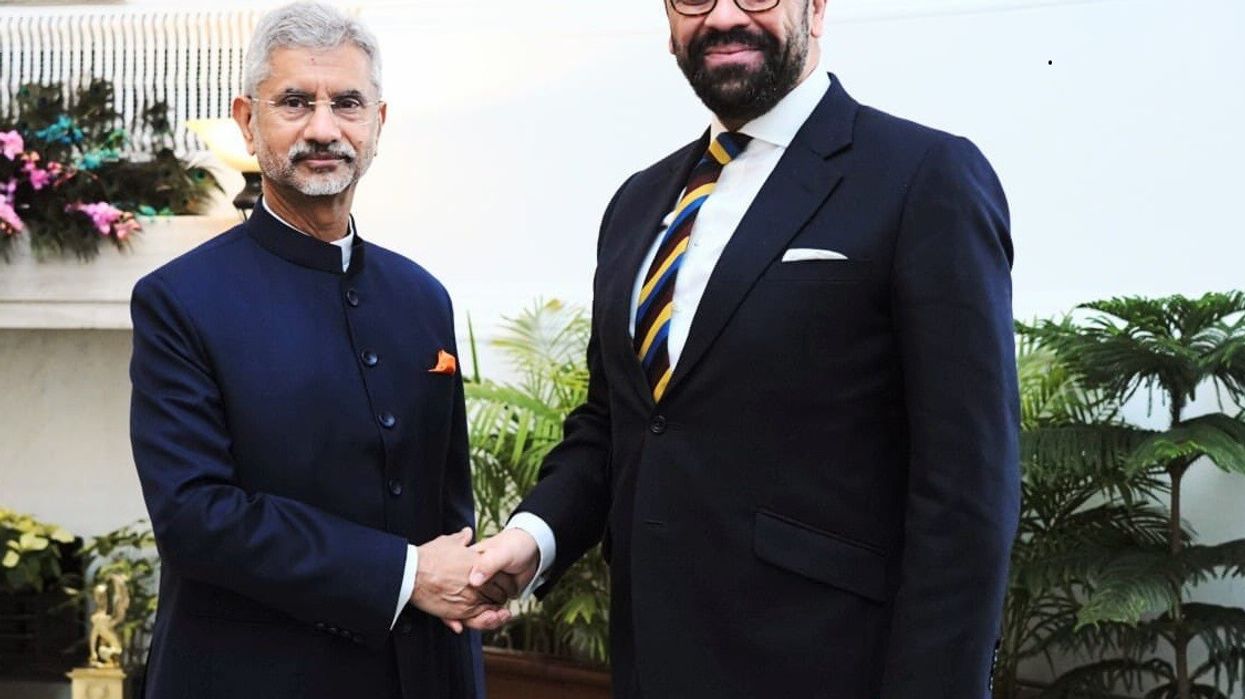External Affairs Minister S Jaishankar on Wednesday (01) held a bilateral meeting with UK Foreign Secretary James Cleverly, holding discussions on the commencement of the Young Professional Scheme.
He also exchanged views on the global situation as well as the G20 agenda. "Began the morning with a bilateral meeting with Foreign Secretary @JamesCleverly of the UK. Reviewed the progress in our relationship since our last discussion. Noted in particular the commencement of the Young Professional Scheme. Also exchanged views on the global situation as well as the G20 agenda," tweeted Jaishankar.
"During a visit to the Indian Institute of Technology (IIT) in Delhi today (Wednesday), the Foreign Secretary will mark the opening of the Young Professionals Scheme, an ambitious new partnership between the UK and India which allows up to 3,000 Brits and 3,000 Indians a year the right to live and work in the other country for up to two years," a release from the UK Embassy stated.
Foreign Secretary Cleverly said India is a hugely important partner to the UK and "the deeper ties we are forging now will help to grow the UK economy and boost industries for the future".
Cleverly is in Delhi to attend the G20 Foreign Ministers meeting.
"He will also launch the new UK-India Young Professional Scheme and announce the creation of UK's first Tech Envoy to the Indo-Pacific region," the British embassy in India tweeted.
Jaishankar also met Mexican Foreign Minister Marcelo Ebrard and Foreign Minister of Comoros, Dhoihir Dhoulkamal.
He welcomed the opening of the Mexican Consulate in Mumbai.
"A warm meeting with FM @m_ebrard of Mexico on #G20FMM sidelines. Noted our strong multilateral cooperation and discussed the G20 agenda. Focused on issues related to growth and development. Bilateral ties have progressed significantly in recent years. Welcomed the opening of the Mexican Consulate in Mumbai. Exchanged ideas on mobility, sustainability and innovation," tweeted Jaishankar.
Meanwhile, he assured Dhoulkamal that India's G20 Presidency will prioritize the voice of the Global South.
"Glad to welcome Dhoihir Dhoulkamal, FM of Comoros and Chair of African Union at the #G20FMM. Reiterated our steadfast support to our maritime neighbour, guided by our SAGAR policy. Assured him that India's G20 Presidency will prioritize the voice of the Global South," tweeted the EAM.
The G20 Foreign Ministers Meeting (FMM) is scheduled to kick off in physical format from March 1-2, 2023 in New Delhi, under India's presidency.
The New Delhi meeting will be attended by Russian Foreign Minister Sergey Lavrov, US Secretary of State Antony Blinken and UK Foreign Secretary James Cleverly, China's Foreign Minister Qin Gang, and Australian Foreign Minister Penny Wong, however, Japan's Foreign Minister Yoshimasa Hayashi will not attend the meeting.
Prime Minister Narendra Modi is expected to address the foreign ministers of the member countries of G20 and he will talk about India's growing influence globally.
(ANI)




